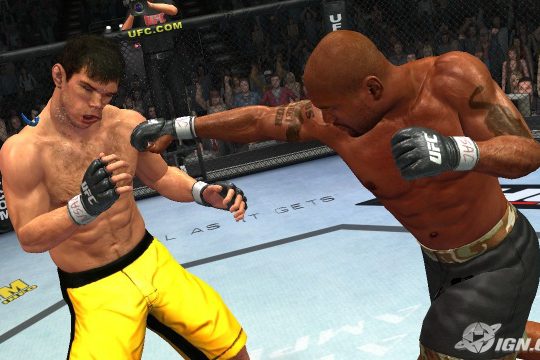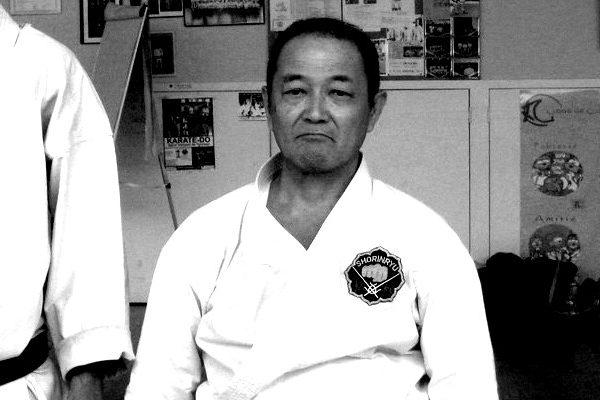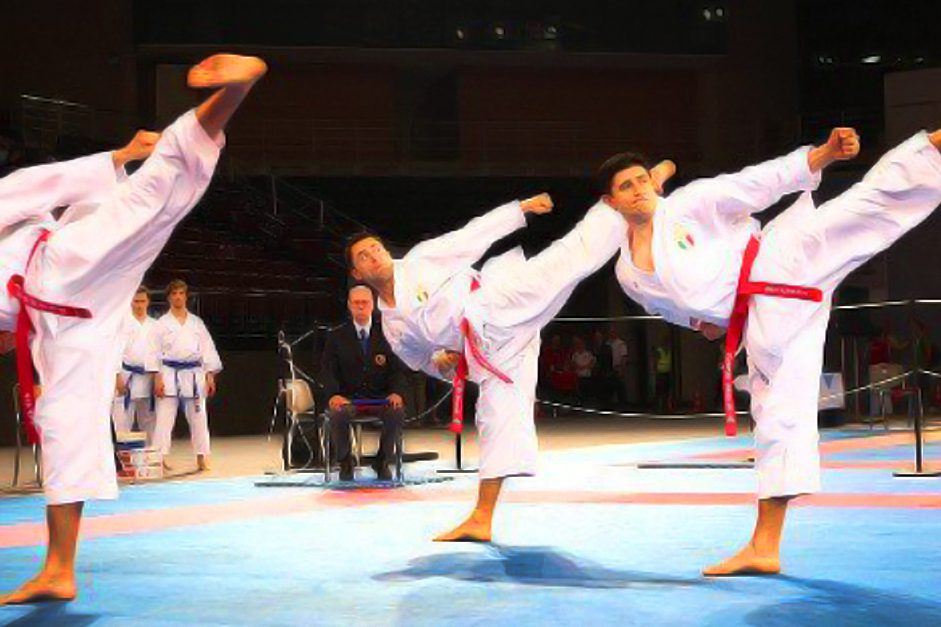Everything is supposed to go so fast these days.
“Modern Kung-Fu Karate: Iron Poison Hand Training, Book 1 – Break Bricks in 100 Days”
“Become a Lethal Weapon in Only 14 Days – The “Unfair” Fighting Secrets of the Most Dangerous, Most Feared, and Most Respected Street Fighters in the World”
“Learn The Martial Arts in 8 Weeks”
“How To Become A Lethal Weapon In 2 Weeks – Self Defense Guide”
“Master The Iron Palm in 100 Days”
“Teach Yourself Karate in 1 Week”
“The Shaolin Workout: 28 Days to Transforming Your Body and Soul…”
All of these are titles of actual books I just found on Amazon.com.
I didn’t make them up. Really. People actually sit down with a pen and paper and plan these kinds of books, proceeding to then even writing them!
Search for “martial arts”, or “Karate”, or any other skill you can come to think of in general among the thousands of book and DVDs out there, and you’ll quickly notice that anyone can “easily” become a master in practically anything by studying a book or such for as little as one week.
In fact, you can even be a total “Dummy”, and still become an expert in X days!
Yeah.
And then came Santa Claus.
I mean, apparently there is no need for this website anymore.
Here I am, thinking you need to know all sort of “hard” stuff – ranging from the physical to the psychological, to the tactical to the technical – to become an all-encompassing Karate expert of some degree, when you can obviously just get a holy book and become an expert master in a couple of days!
Why the hell didn’t somebody tell me that before I wrote 200+ frickin’ free articles on this stuff?
Geez…
But hold on. Wait a minute.
There’s something fishy going on here.
Let’s take a fictional book title and break it down for a few seconds, to see if there is possibly some truth hiding behind the promising titles. That’ll be fun. We might even discover something along the way.
Let’s take “Learn Karate in 10 Days”.
Can you really?
- “Learn”
What is learning? Is it… the act of merely accumulating a bunch of facts that relate to your specific subject at hand? If so, then yes, you can surely learn (and even “master”) something from a book, provided it has all the facts you will need straight.
However, if you, like me, believe learning is more than just remembering stupid things, then it becomes more difficult. If you believe learning is not so much about reflecting stuff as it is absorbing stuff, then we have a problem right now.
Because that’s a big challenge for a book.
This quote in particular (from Humberto Maturana’s Biology of Cognition and Autopoiesis and Cognition: The Realization of the Living) really nails down the definition of learning, I believe:
“Learning is not a process of accumulation of representations of the environment; it is a continuous process of transformation of behavior through continuous change in the capacity of the nervous system to synthesize it. Recall does not depend on the indefinite retention of a structural invariant that represents an entity (an idea, image or symbol), but on the functional ability of the system to create, when certain recurrent demands are given, a behavior that satisfies the recurrent demands or that the observer would class as a reenacting of a previous one.”
So, no, you can’t really learn from a book.
You can, however, learn by steadily applying concepts, ideas and theories found in some books, and then putting those into your own situation – creating your own learning experience day by day, according to your circumstances.
But the book isn’t teaching you.
You are.
- “Karate”
Karate. What is it?
Well, that question in itself needs a whole book to answer.
Yet the popular definition seems to be (prepare for the longest sentence in the history of KbJ): “The physical act of kicking, screaming and punching wearing a white pajamas, divided into set forms (kata), basic movements (kihon) and sparring (kumite), utilizing a plethora of pseudo-Japanese terms and phrases in a safe learning environment with the main goal of exotic socializing approximately three times a week, occasionally interrupted by commonly considered highly related social events such as competing and/or grading.”
Put the above definition down in book form, and that is what you’ll “learn” from a book like this.
Maximum.
Well, needless to say, that’s not really our definition of Karate, is it?
- “In 10 Days”
That’s just wrong.
Some people can barely remember their own address in ten days, let alone a geometrical pattern of defensive/offensive templates strung together into a physical form known as kata.
Me? I don’t even remember which one of the words “youka” and “yokka” are “the fourth” and “the eight” day of a month in Japanese. And I was supposedly “taught” that in 2007. I mean, it’s even written in every Japanese language learning book I own, and believe me I’ve got plenty of those.
Learning takes time. It is an accumulative process indeed.
Nuff’ said.
So that was the quick breakdown.
It seems a book that promises to “teach” you “Karate” or any other “martial art” in “10 Days”, “2 Weeks” or “24 Hours” is pretty much bull. At the very best, it will give you a brief overview of what the author at hand considers most important in the specific area of learning (based on his/her definition of the skill or art, and his/her understanding of the said definition).
So scratch that.
Books like those provide very little actual knowledge.
And as we all know, a little knowledge is a dangerous thing.
So, how the heck do you become an expert in this stuff anyways? I want to become a master, you want to become a master, we all want to become a masters. Chuck Norris only needs a kick, Van Damme only needs a split, Arnold only needs a shotgun. What do we need?
Do we need… the T-word?
[dare I say it?]
TALENT?!
Well, if it’s up to most regular people, it’s all about talent. Either you seem to have it, or you don’t, and that’s what apparently determines if you will go from rags to riches or not.
To give you guys a personal example, when I first jumped onto the “intense training required for sporting excellence = a risky investment of time and resources, with a brief payback window, an ever-present threat of injury and overdependence on factors outside one’s control… plus after all that work everyone is just gonna say you have magical fast-twitch muscles anyway” -bandwagon a couple of years ago, I had no talent. I lost first round all the time. Every goddamn tournament. Over and over.
Now, when I start getting trophies at big tournaments, I have suddenly acquired “talent.”
I guess the magic Karate fairy decided to finally sprinkle some pixie dust on me…
Well, what people don’t realize is that I’ve been “untalented” in this stuff (due to my commitment to more practially oriented Karate) for my whole life. With one win came twenty losses. Standard.
Up until this year.
So why is that?
I’d like to think it’s because I’ve trained. And learned. And then some.
Of course.
It all boils down to training. And believe me, no matter what preference you currently have in Karate, whether it be the sporting aspect, self-defense, kata, standing grappling, kumite, street fighting, kihon, grading stuff – no matter what – it will take more than a couple of days or weeks of training.
More than a couple of years, even.
And that’s the problem to why so few people become great.
You see, when you start out practising something (in this case Karate) you will inevitably belong to one of two universal groups:
- People who “get it”.
- People who don’t “get it”.
The first group is generally called talented, and the second is generally called average (or losers, depending on how bad your case is).
So, both groups of people start out practising something, and naturally the people who “get it” have a head start. They learn a kata ten movements faster than you, they pick up kumite combinations thrice as fast as you and they complete the whole kihon before you’ve even rememberd the second move.
Why?
They are talented.
And you are not.
Which is great for them. The sad part is that it often makes people like you, untalented people, quit in the beginning. Because naturally you think that they are the norm, and that you suck ass. Which isn’t true. But we don’t see it that way. It’s in our DNA to compare us with everyone else. We get discouraged.
So what’s the solution?
Read the previous paragraph again, and notice that I use the word beginning (in the sentence “… quit in the beginning”). Because understanding that is where the answer to mastery lies.
The beginning.
If you ask me, it appears to be some kind of cosmic freaky Newtonian law that the longer two people do something, the less their pre-journey starting condition matters when you finally compare their end results.
And the deeper implications of that sentence explains two things:
- Why talented people tend to quit early.
- Why the world’s greatest were surprisingly sucky in the beginning.
Let me explain:
- Why talented people tend to quit early:
Talent is a great kickstarter. No doubt. You own everybody without ever having practised before. People look at you like you’re from another planet (a good one, and not one of those creepy sci-fi ones), and you get overwhelmed by compliments everytime you show up for practise – soccer, ice hockey, piano lessons, Duke Nukem, chess… or Karate.
And you thrive.
And you keep practising.
Until you one day find yourself close to that that edge where your talent is about as good as it gets. That horrible spot where the only thing that is going to take you even further, and higher, on the learning curve is to actually start deliberately practising with the goal of becoming better.
Instead of just doing what you’ve always done.
Talent took you this far, and you need to keep building by yourself from here. And this is, obviously, very hard to do for somebody who starts out talented. Because putting in effort has never been an issue. I mean, c’mon man, you’re used to having stuff come easily, right?! Training is supposed to be fun, right?!
Effort isn’t fun.
Unless you were taught that is was… but you never were.
In short, talented people quite because they inevitably lose an essential ingredient to their overnight success:
MOTIVATION.
Motivation which was, mind you, only fueled by their innate talent and peoples’ subsequent praise for this natural talent.
Which takes us to the next group of people:
- Why the world’s greatest were surprisingly sucky in the beginning.
And not just sucky, but unimaginably sucky.
Like, even more sucky than the end of that movie No Country For Old Men.
Here. Let me give you a list of some of the most successfull people in their respective fields, and you tell me if you recognize their names:
Tiger Woods, Mozart, Beethoven, Bill Gates, Warren Buffet, Steve Jobs, Michelangelo, Michael Jordan, Einstein, Usain Bolt, Picasso, The Beatles.
The truth is, all of these people worked incredibly hard to get where they are (or were, in case of dead people), but we never learn about that because their huge success outshines everything else.
They worked that hard because they had no talent.
At all.
Looking at the early work of these people shows you that. The greatness of the Beatles, for instance, was forged by the early experience of playing 7-8 hours a day for months at a time in Hamburg. They just copied, mimiced and imitated other famous bands, right down to Buddy Holly’s hiccup vocals. It’s called “fake it till you make it” and it works pretty well.
They had no magic talent.
The same goes for everyone else. And precisely for that reason, they worked ten times harder and longer than their peers (especially their talented peers), eventually becoming the greatest even though that might never have been the goal to begin with.
They just wanted to become “good”.
However, during that quest for good, they ended up becoming so obsessed with constant improvement that they didn’t really care in the end. They just kept doing it. And doing it. And doing it some more.
To use a popular word, they were underdogs. And contrary to popular belief, being an underdog isn’t about merely getting lucky — rather, it’s about tapping into the psychological and social advantages that are built into the actual underdog story. Aggression. Purpose. Innovation. Social ties.
Being an underdog is the equivalent of getting a daily dose high-octane fuel.
Which, in the end, makes you fly past people with short-lived dreams of success based on a spark of talent, fueled by people’s praise for that.
So what is the conclusion of it all?
Talented people quit because they don’t have more than talent, and regular people quit because they think they need more talent. That’s why so few people become the best in the world. Not because it’s especially hard, and not because they can’t, but because they told themselves many years ago that they probably can’t. So in reality, very few actually try.
That’s why there’s so little competition for becoming the best.
The secret to succes, then, is easier than you realize.
Do something. And keep doing it.
To me, it seems that the further you get, the more true these two mantras get for every day that passes:
- Practise is the key.
- Talent is meaningless.
And until somebody comes along and writes a book entitled “How To Learn Karate in 10 Years (Minimum) & Become A Deadly Killing Machine of Enlightenment Through Hard Practise and Relentless Belief In Yourself, Coupled With a Big Dose Of Patience & Spirit”, I will keep doing my thing, and writing this blog.
Not because I’m the best, but because there’s people out there who need it.
People like you and me.
“We are what we repeatedly do. Excellence, therefore, is not an act but a habit.”
– Aristotle (384 BC – 322 BC)
I hope you agree.



31 Comments